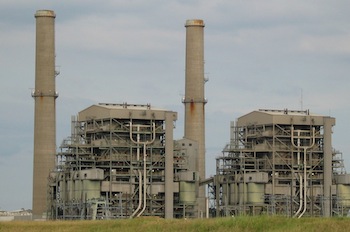 Our risk of rolling blackouts isn’t over yet. Not by a long shot. What weather hasn’t done to drive our power grid to the point of rolling blackouts, could soon be finished off by pending regulation. Either way, you could be experiencing more regular power outages.
Our risk of rolling blackouts isn’t over yet. Not by a long shot. What weather hasn’t done to drive our power grid to the point of rolling blackouts, could soon be finished off by pending regulation. Either way, you could be experiencing more regular power outages.
The head of the Texas Public Utility Commission expressed concern Friday that a new federal air quality rule, set to take effect Jan. 1, will cause disruptions in electric service, reports the Fort-Worth Star Telegram.
If implementation of the Cross-State Air Pollution Rule is not delayed, “I have no doubt in my mind that this rule will result in reliability issues and rolling outages in Texas,” Donna Nelson said at the start of the commission’s meeting.
The rule, issued in early July by the Environmental Protection Agency, would require substantial reductions in emissions of nitrogen oxides and sulfur dioxide at power plants in 27 states.
Dallas-based power generator Luminant says it doesn’t have enough time to comply and has asked that the EPA delay implementation. The company says the industry’s standard time frame for installing emission controls is several years, but the rule requires compliance in six months. As a result, coal-fired power plants in East Texas may be forced to shut down.
“Escalating demand and diminishing generating capacity increases the likelihood of rolling blackouts.,” says Master Electrician Jim Fish of Generator Power Systems. “We’re coming to a point where a standby generator will is longer a luxury item.”
Natural gas generators sense loss of power and automatically switch on to provide power to a home or business. A standby generator can power an entire home, or just the essentials until power is restored. Such outages are becoming more likely with the combination of this year’s extreme temperatures and regulatory climate.
For the short term, Texas’ power grid continues to be taxed by exceptionally high temperatures that have led to record-high electricity demand this summer, the PUC was told Friday by Mike Cleary, senior vice president and chief operating officer for the Electric Reliability Council of Texas.
Cleary said power supplies could be tight next week with schools reopening and adding about 1,500 megawatts of additional demand. ERCOT set an electricity demand record of 68,294 megawatts on Aug. 3.



